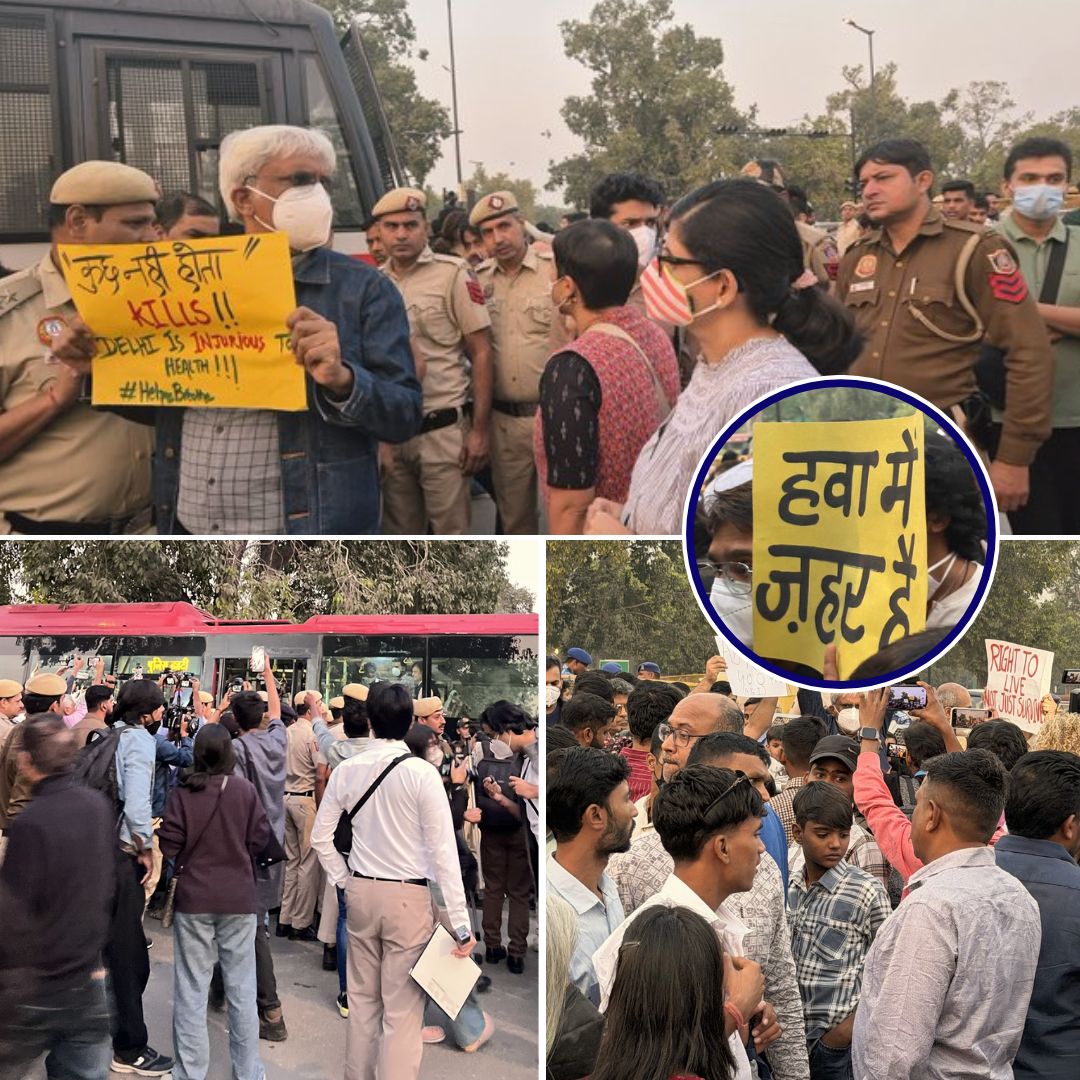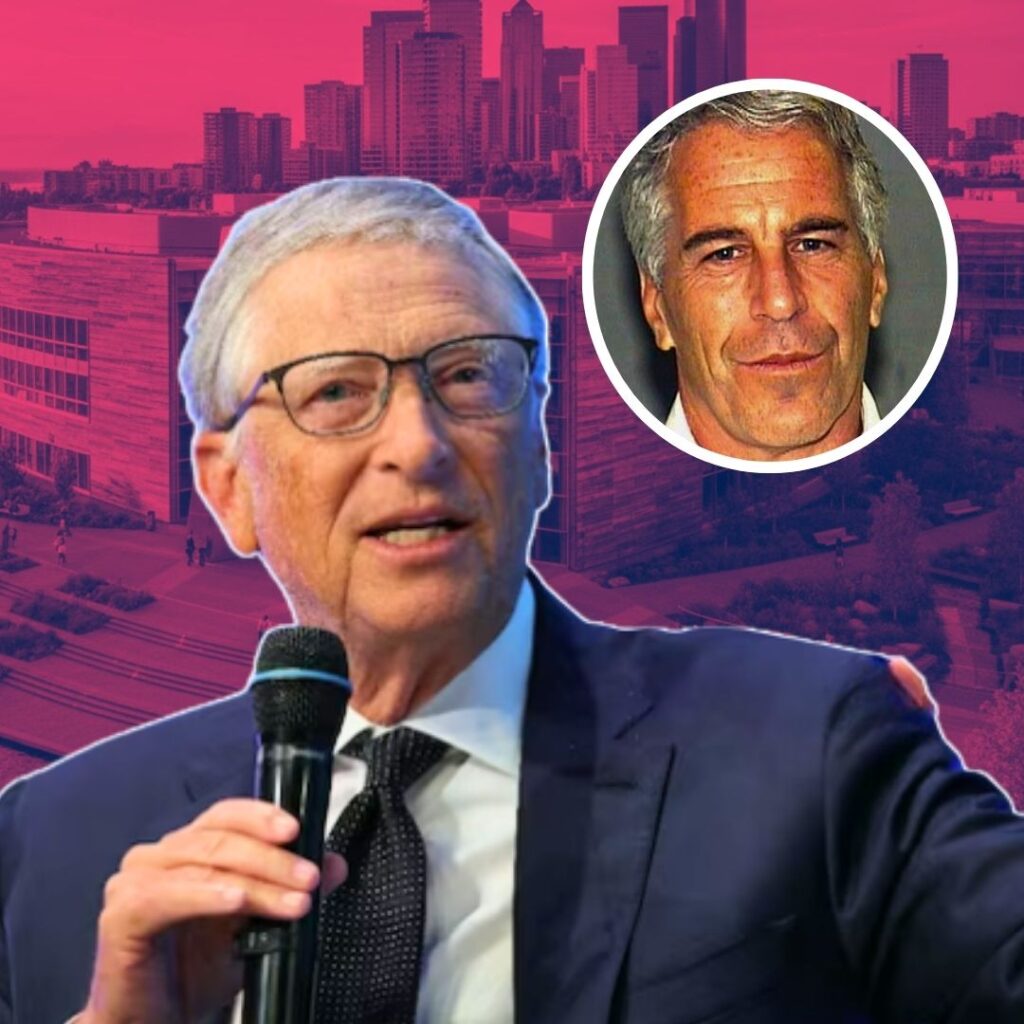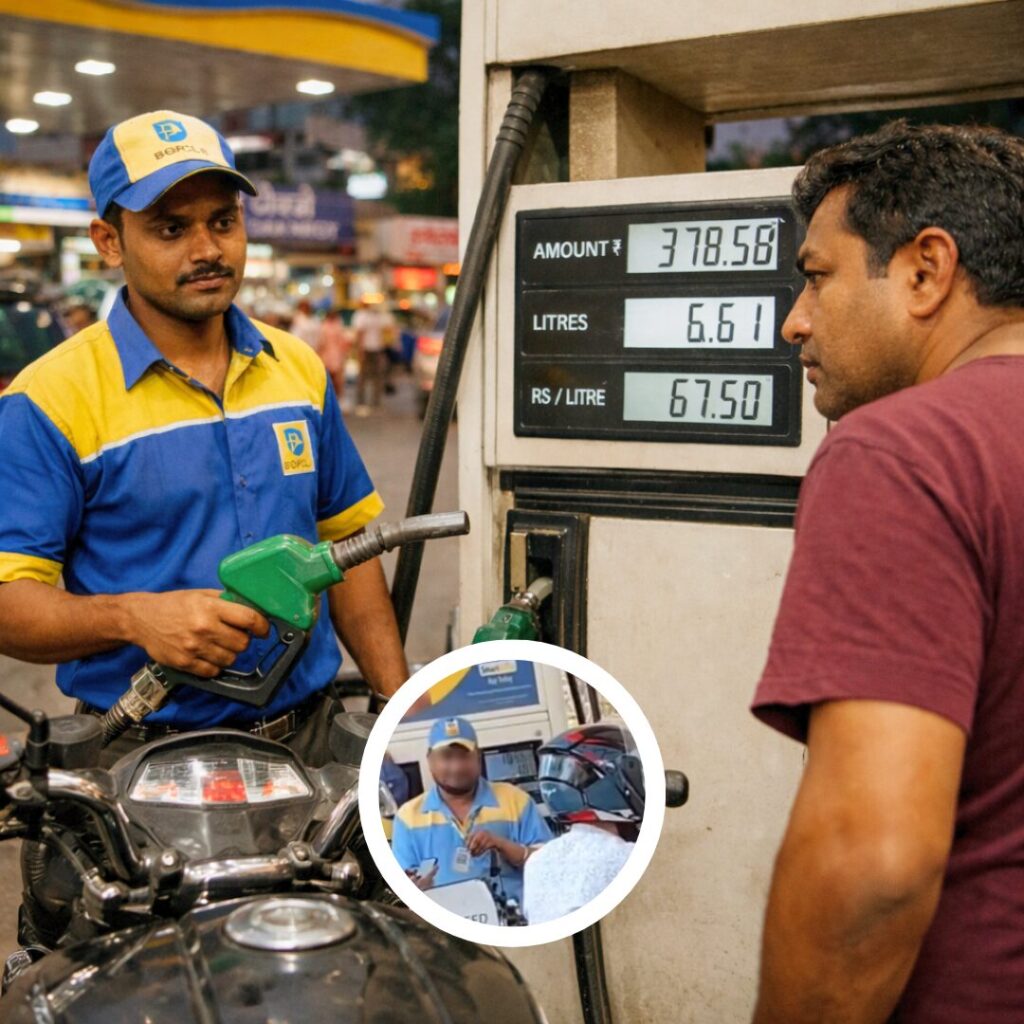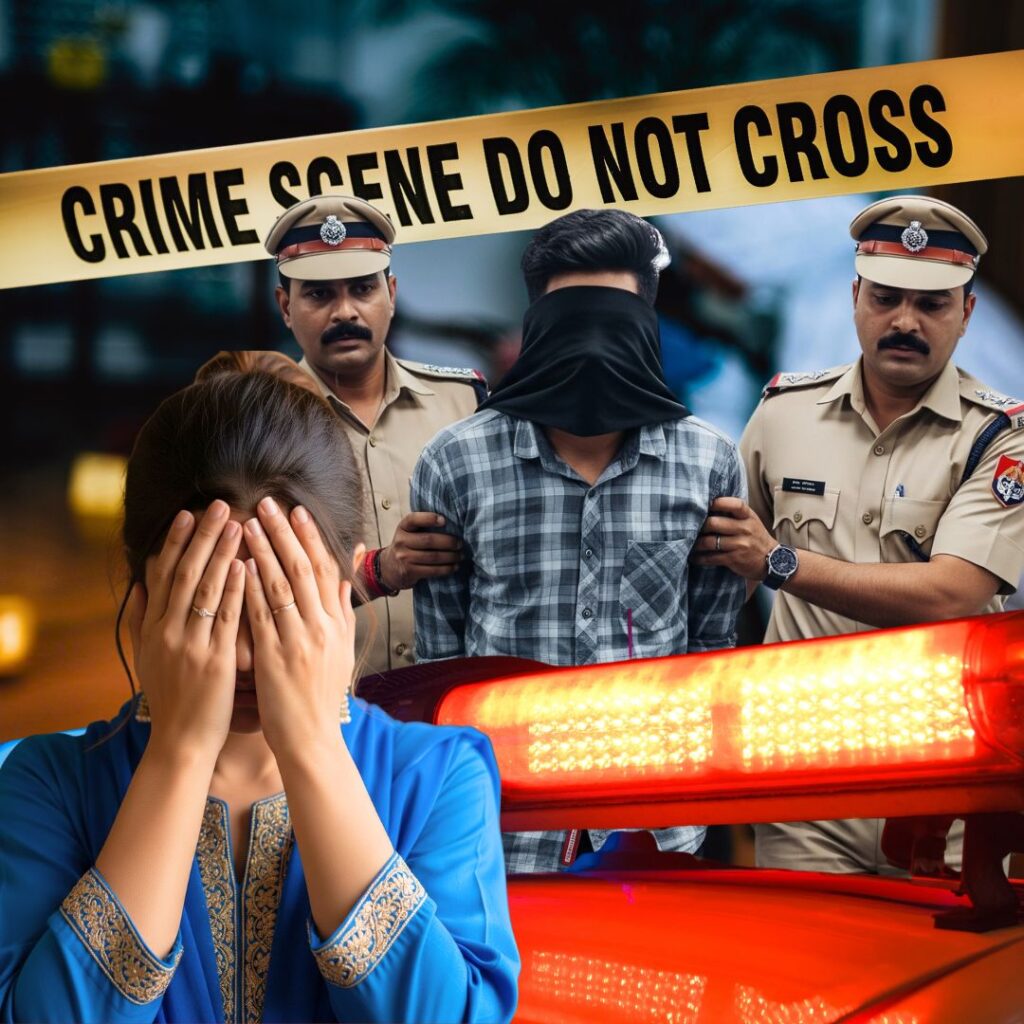Hundreds of parents, activists, and children gathered at India Gate, Delhi, on Sunday to protest the city’s dangerously high air pollution levels. They demanded urgent and effective government action to address the worsening air quality that is severely harming public health, particularly children.
Police detained several protesters for assembling without permission, citing legal restrictions and security concerns, highlighting the ongoing tension between civic activism and administrative rules.
Environmentalists stressed the grave health impacts on children, revealing that every third child in Delhi suffers from lung damage due to pollution, while protesters accused the government of inaction and data manipulation as the air quality index (AQI) soared above 400, signifying a “severe” pollution crisis.
Delhi has deployed riot police to stop a protest against air pollution.
— Anish Gawande (@anishgawande) November 9, 2025
As the AQI touches 600 long before peak winter, the government is busy tampering with monitors with water sprinklers and beating up young mothers and students for fighting for clean air.
National disaster. pic.twitter.com/pDppxkSKZj
Severe Air Pollution and Its Toll on Children
Delhi’s air quality has deteriorated to hazardous levels, with many parts of the city recording AQI values exceeding 400, which falls under the “severe” pollution category, some areas even recording more than 600. This high pollution level poses serious health risks, especially to children, the elderly, and individuals with respiratory conditions.
The protest at India Gate involved families, many with young children, sharing emotional accounts of health struggles, backed by placards demanding the right to “breathe clean air” and protect younger generations.
Protesters expressed frustration over government officials refusing meetings and failing to communicate plans to tackle the crisis, feeding public distrust and anger.
Police Response and Detentions
The Delhi Police detained several activists and parents during the protest, stating that the demonstration lacked official permission. Deputy Commissioner of Police (New Delhi), Devesh Kumar Mahla, clarified that India Gate is not a designated protest site; Jantar Mantar is the official location where permissions must be sought according to a Supreme Court ruling.
The detentions were described as preventive measures to maintain law and order and avoid disruption to security arrangements. Opposition leaders and activists condemned these police actions as suppression of the peaceful expression of legitimate grievances in a public health emergency.
In response to the worsening pollution, the Delhi government also announced staggered office hours to reduce vehicular pollution during the peak winter season.
India gate clean air protest, we are taken away, shoved in a bus. pic.twitter.com/zSyieAT3uC
— Vimlendu Jha विमलेंदु झा (@vimlendu) November 9, 2025
Background: The Growing Air Pollution Crisis
Delhi’s air pollution has escalated in recent years due to a combination of vehicular emissions, industrial pollution, dust from construction, and seasonal crop stubble burning in neighbouring agricultural states. Multiple studies link this pollution to thousands of premature deaths annually, significantly decreasing life expectancy and quality, particularly affecting children and vulnerable groups.
Pollution exposure in Delhi is often compared to the harmful effects of passive smoking. Once known as the “green capital” of India, Delhi’s transformation into one of the world’s most polluted cities is a distressing testament to ongoing environmental neglect and policy failures.
With winter setting in, pollution levels are forecast to remain dangerously high unless transparent and decisive action is taken.

Social Media Campaigns Amplify Awareness
Alongside street protests, vigorous social media campaigns have been amplifying calls for cleaner air under hashtags like #HelpUsBreathe.
Activist groups, student organisations, and environmentalists have used social platforms to demand accountability from authorities, promote awareness about pollution’s deadly toll, and push for concrete policy implementation.
These online campaigns have helped broaden participation, connecting diverse communities in a unified demand for change and greater government transparency.
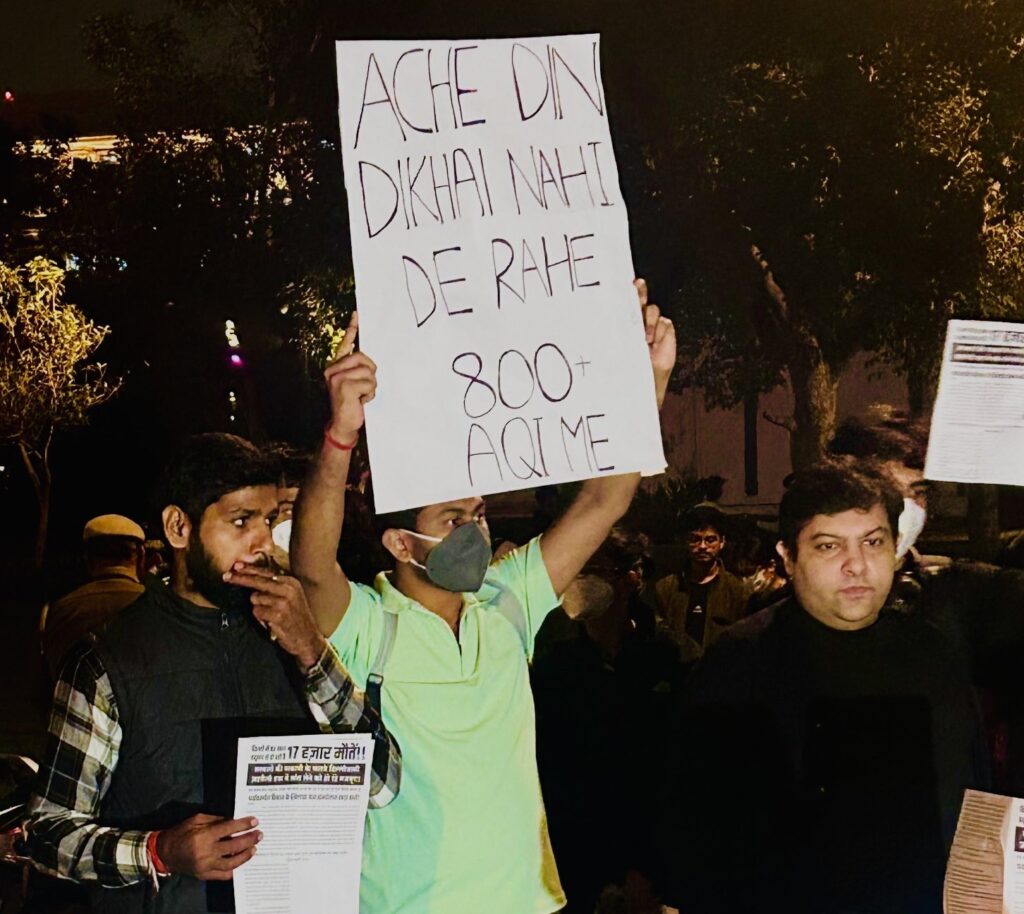
The Logical Indian’s Perspective
The Logical Indian supports the peaceful and determined voices of citizens demanding their fundamental right to clean air and healthy lives. Suppressing protests or evading accountability will only deepen mistrust and social fragmentation.
It is crucial for governments, activists, and communities to engage in honest dialogue, showing empathy and collaboration to craft effective and sustainable solutions to Delhi’s pollution crisis. Protecting the environment is both a moral and civic imperative that requires collective responsibility.
Citizens, police face-off at India Gate.
— Aparna Kalra (@Apkal) November 9, 2025
Protestors trying to convince Delhi Police personnel that they too are inhaling toxic air.
“I miss breathing”, says a protest placard. #DelhiPollution #AirPollution pic.twitter.com/fwzvl652QU


